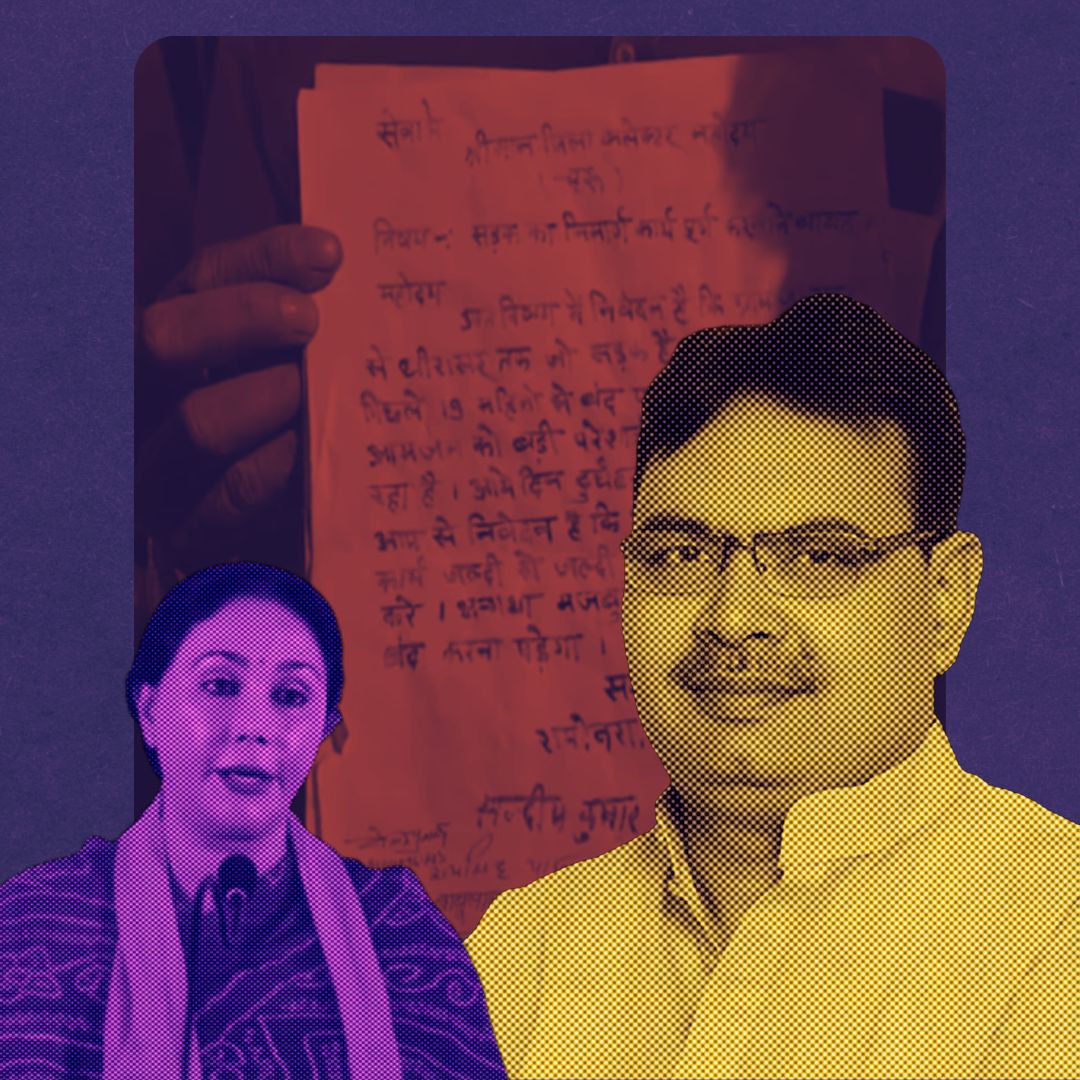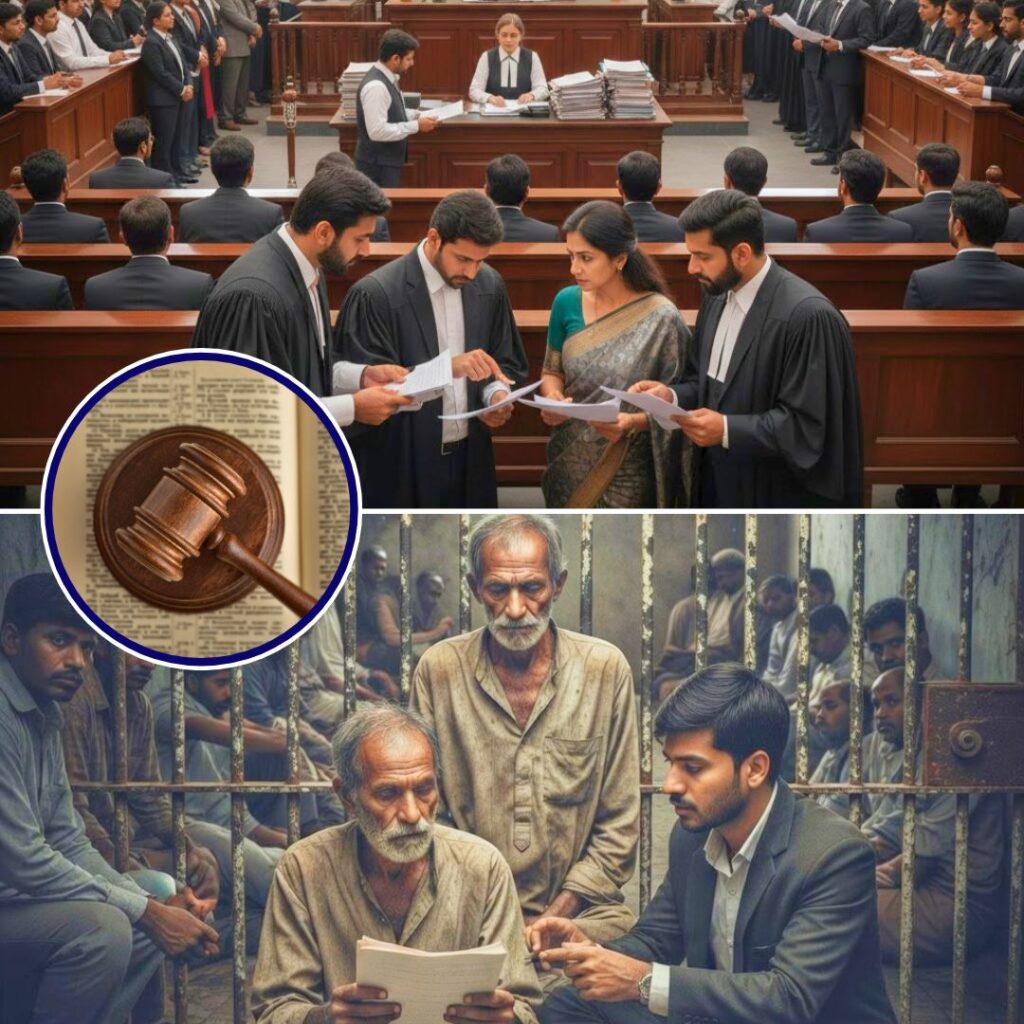In a desperate plea for road repairs, villagers from Churu district in Rajasthan have resorted to writing a letter in blood to local authorities. The residents of Dheerasar, Jasarasar, Nakarasar, and Ramdevra have faced severe difficulties due to a dilapidated road that has remained unrepaired for 19 months. Despite multiple requests to officials, no action has been taken, prompting this extreme measure as a way to highlight their plight.
Desperate Measures for Urgent Repairs
The villagers expressed their frustration over the deteriorating condition of the road, which has become a source of danger and inconvenience. One resident stated, “We wrote the letter in blood so that the administration can understand our pain.” The 35-kilometre journey from Dheerasar to Churu takes over an hour due to the poor state of the road, which is filled with potholes and poses a risk of accidents. The contractor responsible for the repairs left the project incomplete nearly 19 months ago, exacerbating the villagers’ grievances.

Background of Neglect
The ongoing neglect of infrastructure in rural Rajasthan has led to numerous complaints from residents who feel unheard by local authorities. This incident is not isolated; it reflects a broader issue of inadequate maintenance and responsiveness from government officials. Villagers have previously approached leaders for assistance but have received no satisfactory response. Their recent actions underscore a growing frustration with the lack of accountability and urgency from those in power.
Major Developments
1. 21 November – District Collector Responds
In response to the villagers’ protest, District Collector Abhishek Surana assured them that their concerns would be addressed promptly. He stated that if the contractor was found at fault, appropriate actions would be taken against them, including potential blacklisting for failure to complete the road repairs as promised. Surana acknowledged the villagers’ frustrations and committed to resolving the issue swiftly, emphasizing that accountability would be enforced if negligence was identified among contractors involved in public works projects.
2. 21 November – Villagers Present Letter to Collector
On this day, hundreds of villagers gathered at the district collector’s office to submit their blood-written letter. They reiterated their grievances about the road’s condition and warned that if no action was taken soon, they would resort to larger protests. The villagers emphasized the severe impact on emergency services and daily travel.
3. 20 November – Villagers Write Letter in Blood
In a dramatic escalation of their protest, villagers penned a letter in blood to local authorities, demanding urgent repairs to the road. They expressed their frustration after multiple pleas to officials had gone unanswered, stating that they hoped this extreme measure would finally draw attention to their plight.
4. 11 October – Local Villagers Rally for Road Repairs
Villagers from Dheerasar, Jasarasar, Nakarasar, and Ramdevra in Rajasthan began voicing their concerns over the deteriorating condition of a crucial road that connects them to Churu. They reported numerous accidents and difficulties faced due to the road’s poor state, which had been neglected for over 18 months.
The Logical Indian’s Perspective
This situation highlights a troubling trend where citizens feel compelled to resort to extreme measures to be heard by their government. It raises questions about the efficacy of local governance and the responsibilities of officials towards their constituents. As we reflect on this incident, we must ask ourselves: How can we foster better communication and accountability between communities and their leaders? Engaging in dialogue is essential for positive social change—what are your thoughts on how this situation could be addressed constructively?













